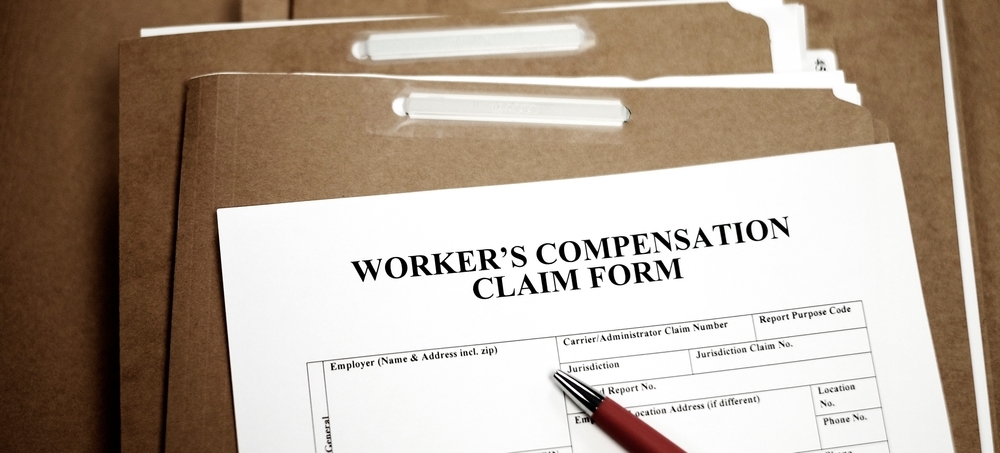
If you’ve been hurt on the job, you’re probably overwhelmed. Between doctor’s visits, missed paychecks, and trying to figure out what your rights are, it’s easy to feel like you’re drowning in paperwork. One of the most common questions we get at Camili & Capo is: “What forms do I have to fill out after a workplace injury in New Jersey?”
We’ve got you. Whether you’ve suffered a back injury on a construction site, slipped and fallen in the break room, or developed a repetitive strain injury over time, this guide will walk you through everything you need to know—step by step.
Let’s break it down.
First Things First: Report the Injury
Before you even touch a form, the most important thing you need to do is report your injury to your employer.
Why Reporting Matters
In New Jersey, you must report your workplace injury to your employer as soon as possible. Waiting too long can hurt your chances of receiving benefits, and in some cases, it could jeopardize your entire claim.
Pro tip: You don’t need to submit a formal report at this stage. Telling your supervisor, HR rep, or manager verbally is enough to get the process started, but following up with an email or written note is always smart for your records.
Similar Post: 8 Easy Steps To Filing a NJ Workers’ Compensation Claim
So, What Forms Do You Have to Fill Out After a Workplace Injury in New Jersey?
Let’s dive into the actual paperwork. Here are the forms you may encounter during your workers’ compensation process:
1. Employer’s First Report of Injury (FROI)
Who completes it: Your employer’s workers’ compensation insurance carrier
What it does: Officially notifies the New Jersey Division of Workers’ Compensation about your injury and starts your claim process
Once you report your workplace injury, it’s up to your employer to take the next step. They must notify their workers’ compensation insurance carrier, which is then responsible for electronically filing the First Report of Injury (FROI) with the New Jersey Division of Workers’ Compensation. This filing is what officially initiates your workers’ comp claim.
Why it’s important: If this form isn’t submitted promptly, it could cause serious delays—or even denials—in receiving benefits like medical treatment or wage replacement. You won’t fill out the FROI yourself, but if you don’t see any movement on your claim after reporting the injury, it’s important to follow up with your employer—or consider speaking with a New Jersey workers’ compensation attorney to protect your rights.
2. Request for Records Inspection
- Who fills it out: You, your employer, insurance companies
- What it does: Allows for verification medical treatment and history, confirmation of employment details, identification of prior claims or injuries, and more, depending on the specific requests included in the form
The form is used to formally request access to specific records that are relevant to your workers' compensation case.
Heads up: Be sure this form is specific to your workplace injury. You don’t have to give blanket access to every medical record you’ve ever had.
3. Employee Claim Petition (Form WC-365)
Who fills it out: You (with the help of an attorney, ideally)
What it does: Formally files a claim if there’s a dispute, your benefits are denied, or you believe you're entitled to more compensation
Filing an Employee Claim Petition starts a legal case with the New Jersey Division of Workers’ Compensation. It allows a judge to hear your case, review evidence, and make a ruling.
Common reasons to file:
- Your claim is denied
- You’re not getting paid properly
- Your medical care is cut off early
- You believe your permanent injury is being undervalued
This form must be filed within two years of the date of your injury or the last workers’ comp payment—whichever comes later.
4. Application for Informal Hearing
Who fills it out: You
What it does: Requests a less formal hearing with a judge of compensation to resolve disputes
If you're not quite ready for a full legal battle, New Jersey offers informal hearings. These are like mediation sessions between you, your employer, and a judge. You can use this process to challenge things like unpaid benefits or denied treatment without jumping straight into a formal lawsuit.
5. Supplemental Forms Based on Your Situation
Depending on the complexity of your case, you might also be asked to complete:
- Work status reports from your doctor
- Mileage reimbursement forms for travel to medical appointments
- Requests for a change of physician if you’re unhappy with your care
These aren’t always mandatory, but they can support your claim and help ensure you’re being treated fairly.
What If My Employer Didn’t File the First Report of Injury?
If your employer refuses to report the injury or tries to discourage you from filing, that’s a red flag.
You have every right to file a Claim Petition yourself, and you may want to contact a New Jersey workers’ comp attorney immediately. Employers (with the exception of independent contractors and sole proprietors with no employees) are legally required to carry workers’ compensation insurance. If they don’t—or if they’re acting in bad faith—legal action may be necessary.
Can I Fill Out These Forms on My Own?
Depending on the form, typically yes. However, workers’ compensation law in New Jersey can get complicated, especially if:
- You have a preexisting condition
- Your injuries are severe or long-term
- You’ve been denied benefits
- You’re being pressured to return to work too soon
Even small mistakes on these forms can lead to delays or denials. That’s why it’s a smart move to work with an experienced attorney who can make sure everything is submitted correctly, on time, and with all the supporting evidence you need.
Similar Post: How Workers’ Compensation Works in New Jersey
What Forms Do You Have to Fill Out After a Workplace Injury in New Jersey? We’ll Handle It for You.
Let’s be honest—after a workplace injury, the last thing you should be worrying about is paperwork. You need to focus on healing and getting back on your feet, not navigating confusing forms and frustrating insurance policies.
At Camili & Capo, we take that burden off your shoulders. We’ll:
- Handle all communication with your employer and their insurance company
- Complete and submit all necessary workers’ comp forms on your behalf
- Fight for full wage replacement, medical care, and compensation for long-term effects
- Step in if your benefits are delayed, denied, or cut off early
We’re here to help injured workers across New Jersey protect their rights and get the compensation they need. You shouldn’t have to go it alone—and with us, you won’t.
Injured on the job? Unsure what forms to file? Contact Camili & Capo today for a free consultation. We’ll guide you through every step of the process—and fight to get you the benefits you’re entitled to.
Disclaimer: This blog is intended for informational purposes only and does not establish an attorney-client relationship. It should not be considered as legal advice. For personalized legal assistance, please consult our team directly.

